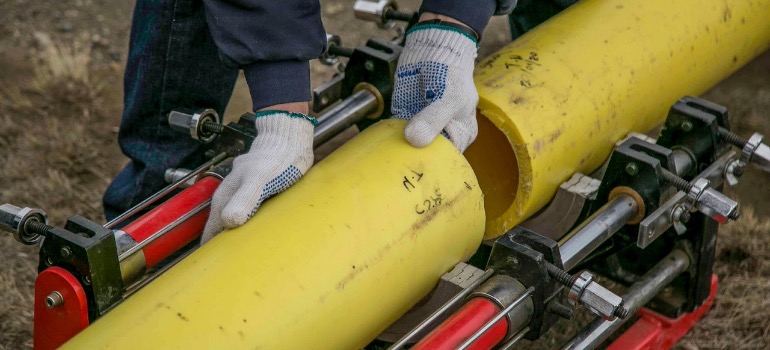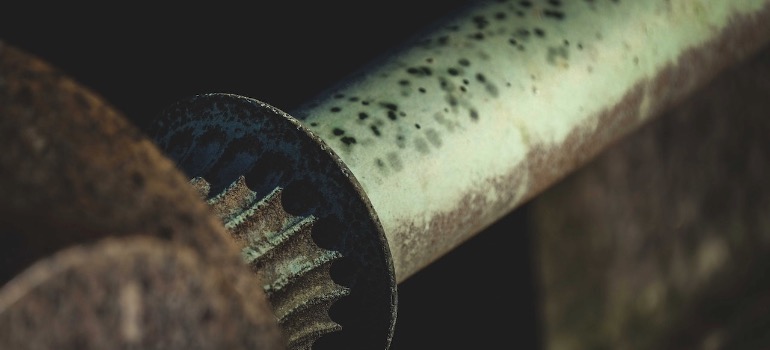
If you’re a Chicago resident, you might have heard about Chicago’s water line replacement program. It’s becoming a big topic in our community. In simple terms, the city is looking into updating and improving the pipes that bring water to our homes. Over time, our city’s infrastructure, including the water lines, has aged and needs an update. This isn’t just a minor change, though. It has significant benefits for homeowners and the environment. You might wonder why the city decided to take on this project and what it means for you. From reduced water bills to easier plumbing system rehabilitation, let’s get into the details and explore the importance of this program for all of us.
The Popularity of Eco-Conscious Living
In recent years, homeowners have exhibited a growing emphasis on environmentally conscious living. Research conducted by the moving company Helix Transfer & Storage even suggests that more and more people are deciding to move to a new home because they want to live in an area that guarantees better sustainability standards. This shift can be seen in the choices they make, from energy-efficient appliances to sustainable home-building materials. Many are adopting rainwater harvesting systems, solar panels, and energy-saving light fixtures in a bid to reduce their carbon footprint. Additionally, the rise in organic gardening, composting, and recycling at home highlights an increasing responsibility towards sustainable waste management. This eco-conscious approach is not just about immediate cost savings or trendy home makeovers; it’s rooted in a deeper understanding of the long-term impacts of human habits on the environment.
The modern homeowner is more informed, thanks to easily accessible information and greater awareness. They recognize that their home is not an isolated unit but an integral part of a larger ecosystem and are making efforts to ensure that their abode is harmonious with the environment.
Understanding the Need for the Program
Why has Chicago felt the need for this vast undertaking? The reason is twofold. On the one hand, much of Chicago’s infrastructure, including the water lines, is aging. Some of these systems have been in place for decades, and like all things, they wear out over time. The wear and tear aren’t just a minor inconvenience. Old water lines can pose significant challenges. Many homes in the city are serviced by lead pipes. These pipes, while once standard, are now known to carry potential health risks, especially as they deteriorate. On the environmental front, these older systems can be inefficient. They can leak and waste water, which isn’t good for our bills or the environment.

The main reason for this initiative is that the local plumbing systems are filled with outdated and rusted pipes.
What the Water Line Replacement Program Entails
So, what exactly is involved in Chicago’s water line replacement program? The city has laid out a well-planned, phased approach for this initiative. Not all areas will see updates simultaneously; instead, the work will be rolled out progressively across different neighborhoods. A team of experts and local contractors have been carefully selected to do the job, ensuring that the work is of high quality and up to current standards. The focus isn’t just on replacing old pipes but on installing newer main water lines. The new lines are expected to be more durable and less prone to problems like leaks. By doing this, the city aims to create a more reliable, safer, and environmentally friendly water system for everyone.
Benefits for the Everyday Homeowner
Now, let’s delve into what this means for you, the homeowner. The promise of enhanced water quality is at the heart of the replacement program. With the removal of old, potentially problematic pipes, residents can expect safer and clearer drinking water straight from the tap. This isn’t just a health benefit; it could also translate into financial advantages. Homes with updated infrastructure are often more appealing in the real estate market, possibly boosting property values.

Improvement projects like Chicago’s water line replacement program have been shown to provide safer and cleaner drinking water to consumers.
Additionally, modern, efficient water lines are designed to reduce water loss. This means those annoying and costly leaks should be a lot rarer, potentially reflecting in reduced water bills. Overall, homeowners can anticipate both tangible and intangible benefits – from better health and potential savings to the peace of mind that comes with a safer home environment.
How the Program Fosters Environmental Progress
When it comes to environmental benefits, Chicago’s water line replacement program offers more than what meets the eye. First and foremost, the updated water lines are designed to minimize waste. Old and deteriorating pipes can often leak, wasting significant amounts of water. With the new system in place, the water is conserved, and energy costs associated with treating and pumping wasted water can also be reduced. Besides, phasing out potentially harmful materials in older pipes decreases the risk of contaminants entering our natural water sources. By opting for sustainable materials in the new lines, the city is taking a firm step towards its broader vision of environmental responsibility by helping aid in the replacement of lead service lines.
What Homeowners Need to Know
With such a substantial program underway, it’s crucial for Chicago homeowners to be in the know. The water line replacements will be conducted in stages, meaning different parts of the city will experience the upgrades at varied times. It’s important to watch for city communications regarding the schedule for your particular area. While this project is undoubtedly beneficial in the long run, there might be short-term disruptions. Road closures, water shut-offs, or noise might be part and parcel of the process. But worry not; the city has plans to minimize inconvenience and ensure smooth transitions. Furthermore, it’s advised to keep abreast of the city’s guidelines. Lastly, once the new system is in place, getting a residential plumber in Chicago to inspect your setup is a smart move to ensure everything’s in tip top shape.

Prepare for at least some noise while construction occurs in your area.
In Conclusion
Chicago’s water line replacement program is not merely a technical upgrade or a city project; it represents a larger vision and a commitment to future generations. Through this initiative, Chicago reaffirms its dedication to enhancing the quality of life for its residents while also playing a part in global sustainability. It’s about more than just pipes and water. It’s about creating a legacy of responsibility, care, and stewardship. For homeowners, this is an opportunity to witness and be a part of a significant transformation. As we embrace this change, it’s also a moment to reflect on our individual roles. By staying informed, engaging in constructive discussions, and supporting the city’s efforts, we move closer to a brighter, cleaner, and more sustainable future for Chicago and its proud residents.